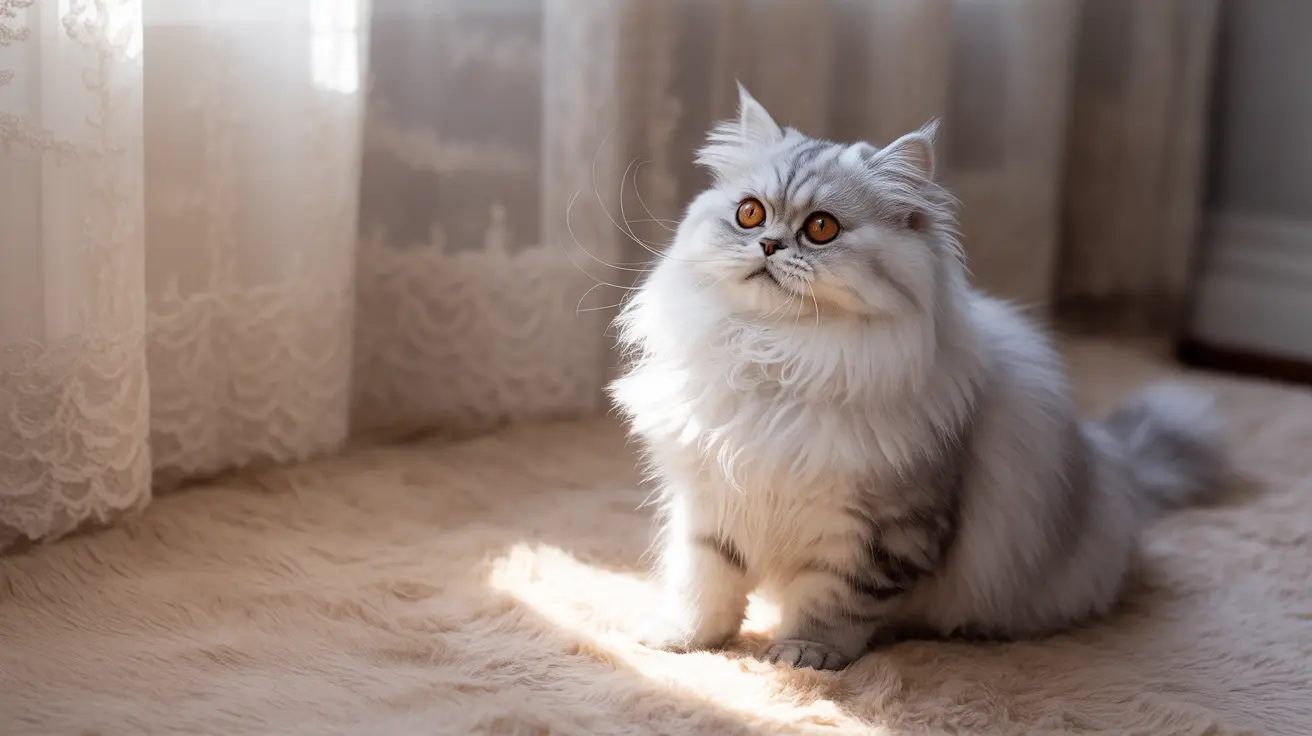Cat owners know that while our feline friends are typically fastidious groomers, sometimes they can develop an unpleasant poop-like odor that's both concerning and frustrating. Whether you're dealing with occasional stinky moments or a persistent smell, understanding the root causes is crucial to helping your cat stay clean, comfortable, and healthy.
This comprehensive guide will explore the various reasons behind why your cat might smell like poop and provide expert-backed solutions to restore your furry friend's natural freshness.
Common Reasons Your Cat Smells Like Poop
Litter Box Hygiene Problems
A dirty litter box is often the primary culprit behind your cat's unpleasant odor. When litter boxes aren't cleaned regularly, feces and urine residue can easily cling to your cat's fur during their bathroom routine. Cats naturally try to bury their waste, which means they're more likely to pick up odors if the litter box isn't maintained properly.
Grooming Challenges
Some cats struggle with self-grooming due to various factors like age, weight, or mobility issues. Older cats, overweight felines, or those with physical limitations might find it difficult to clean themselves thoroughly, leading to accumulated waste and persistent odors.
Dietary and Digestive Issues
What goes into your cat can significantly impact how they smell. Sudden dietary changes, low-quality food, or underlying digestive problems can cause soft stools or diarrhea, which are more likely to stick to your cat's fur. Digestive issues might also indicate more serious health concerns that require veterinary attention.
Preventing and Solving Feline Odor Problems
Optimize Litter Box Maintenance
- Clean the litter box at least once daily
- Use high-quality, odor-absorbing cat litter
- Consider self-cleaning litter box options
- Place multiple litter boxes in accessible locations
Improve Cat Hygiene
Regular grooming is essential, especially for cats who struggle to clean themselves. Use pet-friendly wipes for quick clean-ups and consider professional grooming for long-haired breeds prone to collecting waste in their fur.
Address Potential Health Concerns
Persistent odors might signal underlying health issues. Anal gland problems, for instance, can produce a strong, unpleasant smell. If you notice your cat scooting, excessively licking their rear, or showing signs of discomfort, it's time to consult a veterinarian.
Dietary Strategies for Odor Control
A high-quality, protein-rich diet can significantly improve your cat's digestive health and reduce unpleasant odors. When changing foods, transition gradually to prevent stomach upset and potential digestive issues.
When to Seek Veterinary Help
While some odor issues can be resolved at home, certain signs warrant professional medical attention:
- Persistent, strong foul odors that don't improve with hygiene changes
- Chronic diarrhea or constipation
- Signs of discomfort around the rear area
- Visible changes in stool consistency or color
- Excessive licking or scooting behavior
Frequently Asked Questions
Why does my cat smell like poop even after cleaning the litter box?
This could indicate issues with litter box hygiene, grooming difficulties, or underlying health problems. Ensure daily litter box cleaning and monitor your cat's overall health.
How can I prevent my cat's poop odor from sticking to their fur?
Regular grooming, using high-quality litter, maintaining a clean litter box, and addressing any mobility issues can help prevent waste from clinging to fur.
Could my cat's diet be making their feces smell worse?
Yes, diet plays a significant role. Low-quality food, sudden dietary changes, or digestive sensitivities can contribute to stronger-smelling feces.
What are the signs of anal gland issues causing foul odors in cats?
Look for scooting, excessive rear-area licking, swelling, or a persistent strong odor. These might indicate anal gland infections or impactions.
When should I take my cat to the vet for a persistent poop-like smell?
If odor persists after improving hygiene and diet, or if accompanied by other symptoms like changes in behavior, appetite, or stool consistency, consult a veterinarian.






